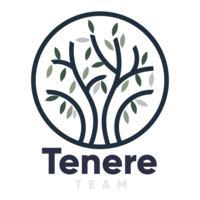Palm oil is one of the most widely used vegetable oils in the world, especially in the soap-making industry. It has many desirable properties for soap, such as hardness, lather, and stability. Unfortunately, with so many benefits, people are beginning to destroy natural habitats to make room for palm tree cultivation. Which leaves a destructive mark on the surrounding environment. This is why many people are trying to stray away from this ingredient and try others to make soap more eco-friendly.
Why We Need Palm Oil Alternatives For Soap?
Palm oil is a controversial ingredient, not because of its effects on the skin, or because the tree itself is bad for the environment, but rather because of how people cultivate palm trees. As the demand for palm oil continues to rise in recent years, more and more forests are destroyed to make room for palm plantations. However, this is only the tip of the iceberg. Deforestation brings much worse consequences, such as decreasing biodiversity, threatening the survival of many endangered species, releasing greenhouse gases, and disrupting the water cycle.

The impact of excessive production of palm oil not only affects nature but also human lives. Many indigenous and local communities depend on the forests for their livelihoods, food, and culture. However, they often face land grabbing, and social conflicts which force them to move elsewhere. Some workers in the palm oil industry also suffer from low wages, long hours, unsafe conditions, and child labor.
So what exactly is palm oil and why does using it negatively affect the environment?
What is Palm Oil?
Palm oil is a type of edible oil that is extracted from the fruit of the palm tree. It has many uses in food, cosmetics, biofuels, and other industries, but it is particularly popular in soap making because it contributes to the hardness, cleansing, and lathering qualities of soap. This is different from palm kernel oil which is more solid due to a higher amount of wax.
Is Palm Oil Soap Good For Skin?

Palm oil has a mix of saturated and unsaturated fatty acids, with the most abundant being palmitic acid, oleic acid, and linoleic acid. It also contains vitamin E, carotenoids, and other antioxidants. Thanks to these amazing properties, palm oil soap is extremely good for the skin.
Is There Sustainable Palm Oil?
In response to the growing concerns and criticisms over palm oil production, some initiatives have begun to promote and certify sustainable palm oil, such as the Roundtable on Sustainable Palm Oil (RSPO), and the Palm Oil Innovation Group (POIG).
Palm Oil Alternatives For Soap
If you want to avoid palm oil in your soap, or if you simply want to try something different, there are many alternatives that can produce similar or better results in cold-process soap. Here are some of the most common and popular alternatives for palm oil for soap.
Babassu Oil
Babassu oil is extracted from the kernels of the babassu palm, which grows in the Amazon rainforest of Brazil. Unlike palm oil, babassu oil is harvested by local communities who rely on the babassu palm for their livelihoods and protect the forest from deforestation.
To use babassu oil as a palm oil alternative, you can simply replace the palm oil in your recipe with the same amount of babassu oil. For example, if your recipe calls for 20% palm oil, you can use 20% babassu oil instead. However, you should always recalculate your lye amount using a reliable Lye Calculator.
Coconut Oil
Coconut oil is similar to palm kernel oil, as both contain a high amount of wax. This makes coconut oil difficult to work with, as it causes soap to thicken and harden quickly. Therefore, we recommend using coconut oil at 20% or less of your total oil in your recipe.
Shea Butter
Shea butter is a common ingredient in moisturizing products, such as hand cream, face cream, or lip balm. It also makes a nice moisturizing and conditioning soap when used for soap making. However, you should limit the amount of shea butter to 15% or less of your total oils, as using too much can cause the soap to crack or overheat. Shea butter has a high percentage of unsaponifiable, which are substances that do not turn into soap and remain in their original form. These substances can enhance the quality of the soap, but they can also interfere with the saponification process and cause problems if used in excess.
Cocoa Butter
Cocoa butter is a well-known ingredient in many of our favorite treats, such as chocolate, cocoa, or any chocolate-related products. But did you know that this vegetable fat is also great for making soaps? Cocoa butter adds a rich and creamy texture to the soap, as well as a chocolatey aroma. However, you should use cocoa butter sparingly, as it can make the soap too hard and brittle. A good rule of thumb is to use cocoa butter at 15% or less of your total oils in your recipe.
Olive Oil

Olive oil is another versatile ingredient that you can use for both cooking and soap making. Unlike other oils in this list, you can make soap with 100% olive oil. However, there are many types of olive oil on the market, and choosing one that suits your purpose can be quite challenging. For soap making, we recommend using “Refined” or “Grade A” olive oil, as they will give you the most satisfactory result. These types of olive oil have a lighter color, a milder scent, and a longer shelf life than other types, such as “Extra Virgin” or “Pomace”. They also produce a smoother and creamier soap that is gentle on the skin.
Sweet Almond Oil
Sweet almond oil is a great alternative to palm oil, as it adds a rich and silky feel to the lather, and it is gentle and moisturizing for sensitive skin. It is a soft and gentle oil, so it works best when mixed with other hard oils, such as coconut or palm kernel oil. However, this is a luxury ingredient, so making large amounts of soap from it would be impractical. Therefore, you should use it as a special touch for your batch, rather than a main ingredient.
Animal Tallow or Lard
Before vegan oils, such as palm oil, coconut oil, or any other oil in this list, became popular in soap production, tallow or lard were the most widely used ingredients to make soap. These are animal fats that are often thrown away as by-products, so people find a way to take advantage of them. However, due to the beliefs of vegans and many religions, soap made from animal by-products is not as popular as they once were.
If you want to try making soap with tallow or lard, we recommend carefully sourcing the ingredients, as many of the animal fats may contain toxins. You should make sure that the product comes from 100% pastured animals before using it, to avoid any unwanted side effects on your skin.
Palm Oil Alternatives For Soap: Conclusion
Using palm oil is like using a double-edged sword. On one hand, it can help you easily create wonderful soap bars, but on the other hand, uncontrolled palm plantation is slowly destroying the environment.
Making your own soap with palm oil alternatives may seem like a small act, but it can have a big impact in the long run.
At Tenere, we share the same vision of creating positive change with small acts. When you use our coupons, we earn a small commission from the store, and every month, we donate a portion of our commission to tree-planting projects that help restore the greenery of our planet. If you want to join us in making an impact, visit Tenere today!









